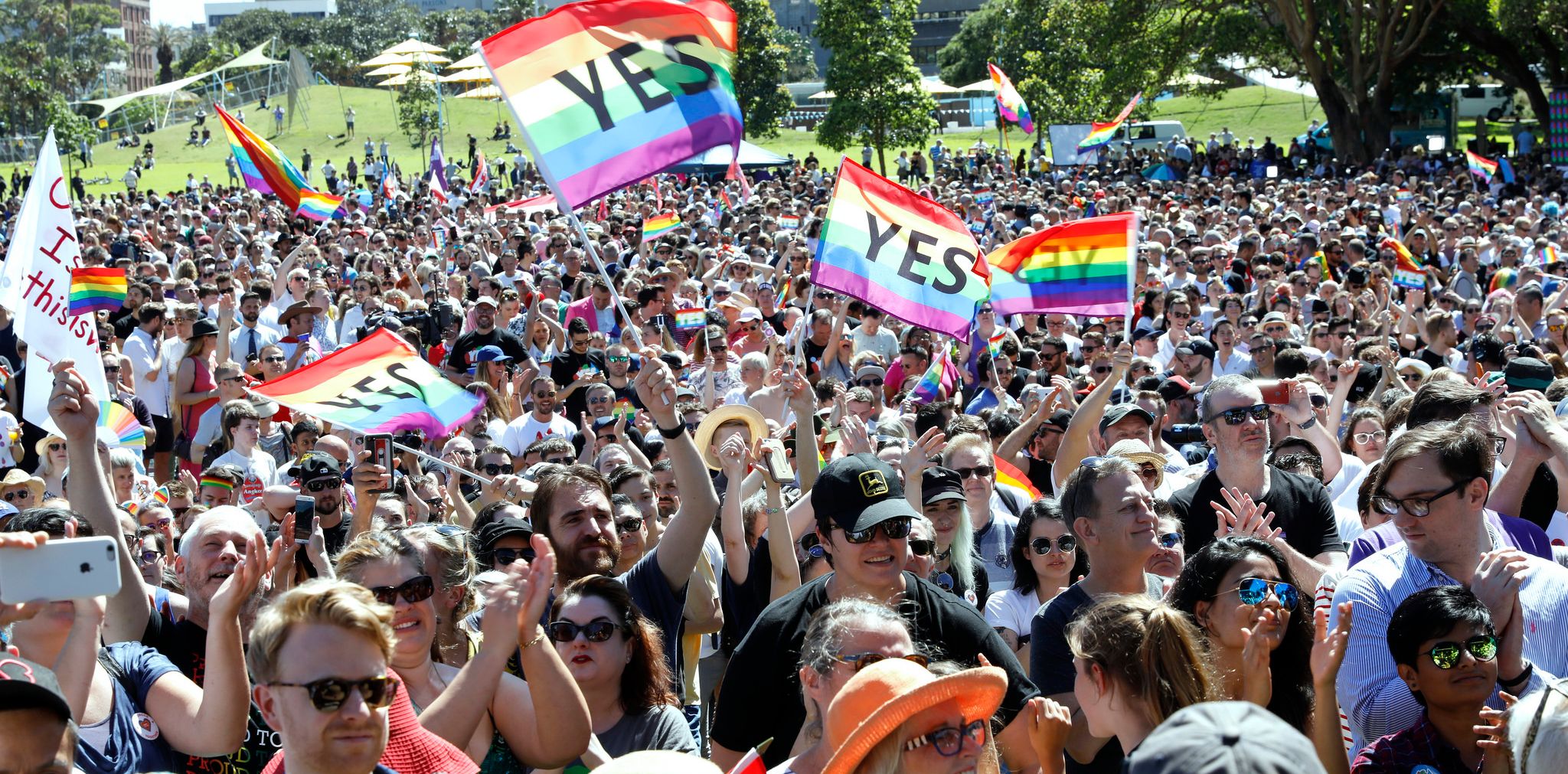
New research confirms the postal survey damaged LGBTI Australians’ mental health

New research has confirmed marriage equality advocates’ warnings, showing that the postal survey damaged LGBTI Australians’ mental health.
Psychologists from the University of Sydney surveyed 1305 Australians who identified as lesbian, gay or bisexual during the postal survey in 2017.
Their research showed that the increased exposure to anti-LGBTI messaging during the marriage equality debate caused increased psychological distress.
But the study also found that this increased distress also served as a source of resilience as it increased the visibility of available support networks to those who struggled.
In a piece outlining their findings for The Conversation, authors Stefano Verrelli, Fiona White, Lauren Harvey and Michael R. Pulciani said they asked respondents if they think those close to them voted Yes or No in the postal survey.
Those who said they believed their friends and family voted Yes reported “significantly better mental health”, and while the research initially suggested the Yes campaign had no net benefit for LGBTI Australians, public and personal messages of support for marriage equality were found to have mitigated some of the harm done by the No campaign.
Those who believed that their social circle voted No benefited the most from positive messaging.
The researchers say they are aware the results confirm something most people already know, but Verrelli said their findings inform ways that the impact of public debates on the rights of marginalised groups can be minimised.
“The findings highlight how political decision-making and legislative processes related to the rights of minority populations have the potential to negatively affect their mental health,” said Verrelli, who was lead author on the research which will be published in Australian Psychologist.
“The family and friends of same-sex attracted people appear to play an important role – and seem to even offset some of the harm done by the negative side of these debates – by openly supporting LGBT rights,” Mr Verrelli said.
“LGBT rights and mental-health organisations also have an important role to play by continuing their public support of minority issues.
“Their public messages of support appear to improve the psychological well-being of same-sex attracted people who require it most.
“Our findings have important implications for public policy and for clinical support for LGBT patients, as well as for mental health and LGBT ally organisations.”
The USyd study sheds new light on the postal survey’s impact following a National LGBTI Health Alliance survey released in December 2017 which showed that more than 90 per cent of LGBTI people and allies said the marriage equality debate had a negative impact on them.
It also reflects on the impact of LGBTI students and teachers being placed at the centre of the religious freedoms debate, as well as conservatives’ ongoing assault on the validity transgender Australians.









